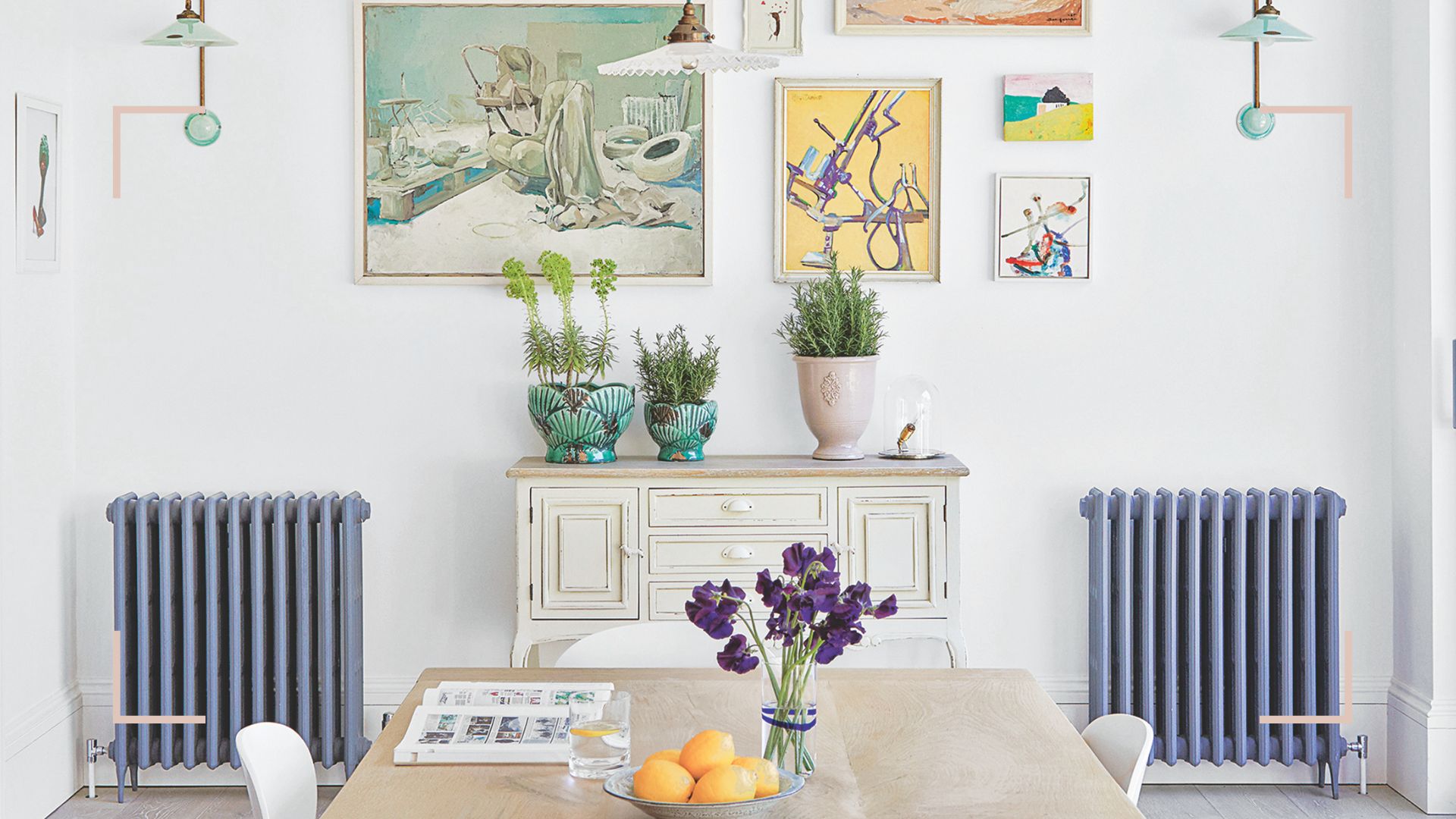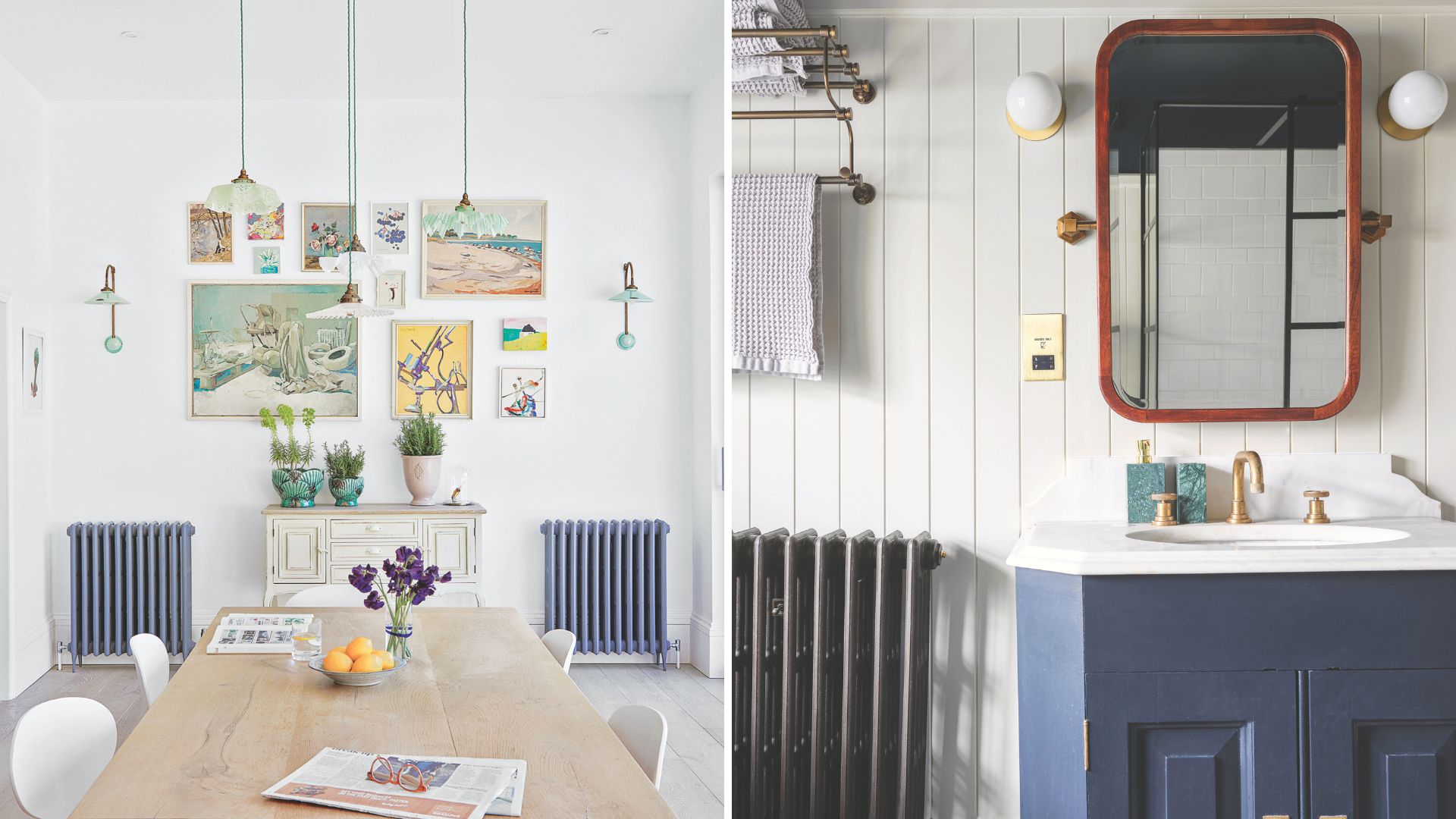Is it more efficient to leave heating on all day? Here's what the experts say
Can keeping your heating running all day, 'low and slow', really save you money, or is there a better way to keep your home warm this winter?


With summer now just a distant memory, heating season has most definitely begun. For many people, this also heralds the start of family battles over how long the heating should be left running, with cries of "just put another jumper on!" ringing throughout the streets.
While central heating is something of a necessity here in the UK, its use obviously pushes up bills, with people searching for ways to save energy in the home and exploring ways to use their systems more efficiently to keep both their homes warm and their household expenses low.
There has been some talk of late about whether, rather than having central heating set to come on and go off periodically, it might be cheaper and more efficient to keep it running all day on a low temperature. To clear things up, we've consulted a team of experts to settle the debate once and for all.
Is it more efficient to leave heating on all the time?
Can it ever really be a good idea to leave your heating on all day in a bid to save money, make a house cosy and ensure you are running it in the most efficient way possible? Every expert we spoke to said the same thing – no.
"If you leave your heating on all the time, even when it's not cold outside, your boiler (or heat pump) is always working to keep your home warm. No matter how well sealed a house is, heat will escape to the outside," explains Sean Hogan, CEO of Aventus Eco, a top Scottish heating and green energy company.
"If your heater is on all the time, it's always making up for the heat that you lose. Over 24 hours, this constant work, even just to keep a 'background' temperature high, adds up to a lot.
"Think about trying to fill a bucket that leaks. You're still using a lot of water even if you only leave the tap running at a trickle to keep the water level steady," continues Sean. "When you need to fill the bucket fast, turn the tap on and then off. This will probably save you water in the long run. The heater is like the leaky bucket, and your house is like the tap."
Sign up to our free daily email for the latest royal and entertainment news, interesting opinion, expert advice on styling and beauty trends, and no-nonsense guides to the health and wellness questions you want answered.

Sean Hogan is the CEO of Aventus Eco, a top Scottish heating and green energy company that wants to lower energy costs, lower carbon pollution, and make houses ready for the future. Sean started Aventus Eco in 2021 to fix problems in the industry by providing the best quality and most open information possible. They are experts in designing and installing air source heat pumps, solar PV, and battery storage systems.

What is the most efficient way to heat a house?
So, if running your heating all day long is a bad idea, what is the solution for those seeking to save pennies on their household bills, and is there an ideal thermostat temperature to aim for?
"When it comes to cost and energy efficiency, the clear answer for most homes in the UK is to use a programmer or smart thermostat to turn your heating on and off as needed," reveals Sean Hogan.
"Even though it takes some energy to warm up a cold house again, this 'reheating' energy is usually less than the energy needed to keep adding heat to a house that's been losing it for a long time. Modern heating systems, especially condensing boilers and heat pumps, are very good at getting to the right temperature quickly."
"For maximum efficiency, I advise keeping your thermostat steady at around 18-21 degrees when turned on, rather than constantly adjusting it up and down," adds Stephen Hankinson, heating expert at Electric Radiators Direct. "A programmable timer or smart control makes this much easier, as you can set your heating to match your routine and avoid unnecessary usage."
What is the best time of day to put heating on?
It's clear then, that it is better to turn heating on and off as needed, but what did the experts recommend in terms of the best times of day to heat a house?
“The coldest time of the day is just after sunrise, so I always recommend switching your heating on for a short burst first thing in the morning when you wake up," advises Stephen Hankinson. "This takes the edge off the chill as you get out of bed and sets your home up for the day without wasting energy by running it for too long.
"At night, it’s far more cost-effective to turn the heating off," continues Stephen. "A warm duvet or extra blanket is usually all you need to stay comfortable. The same applies if you’re out during the day; there’s no need to heat an empty house."
Is it ever a good idea to leave heating on all day?
While all the experts we spoke to agreed that it was better to run heating in short bursts as opposed to all the time, there are a couple of exceptions to the rule well worth knowing about.
"If your home struggles with condensation on windows, keeping the heating on at a steady level throughout the day is wise, as condensation is less likely to build on warm surfaces such as walls and windows,” reveals Stephen Hankinson.
Sean Hogan also has some advice for owners of modern, newly-built properties
"In very modern, well-insulated homes that lose very little heat or in homes with ground heating systems that take a long time to heat up and cool down, leaving heating on can work," says Sean. "But even in these situations, complex settings are often used to keep things comfortable without having to be used all the time. For the normal home in the UK with standard insulation, heating that comes on and off is best."
If you are keen on ways to keep your house warm without increasing your household bills, there are plenty of ideas out there, from draught-proofing measures to the way you lay out your furniture.

Natasha Brinsmead is a freelance homes and interiors journalist with over 20 years experience in the field. As former Associate Editor of Homebuilding & Renovating magazine, Natasha has researched and written about everything from how to design a new kitchen from scratch to knocking down walls safely, from how to lay flooring to how to insulate an old house. She has carried out a number of renovation projects of her own on a DIY basis and is currently on the lookout for her next project.
You must confirm your public display name before commenting
Please logout and then login again, you will then be prompted to enter your display name.